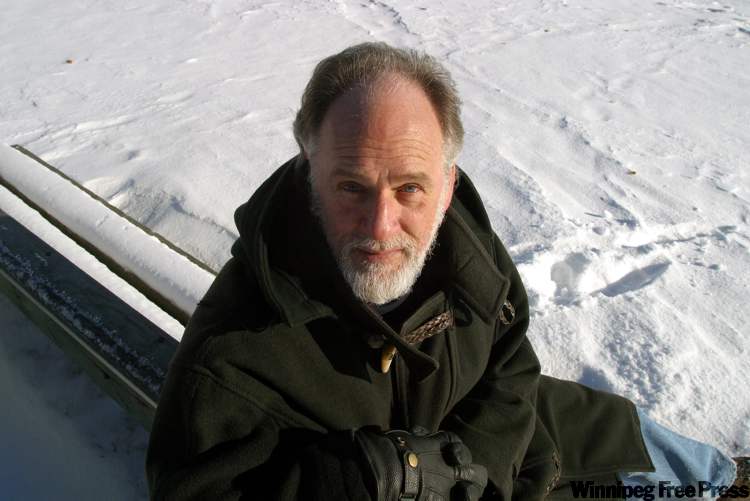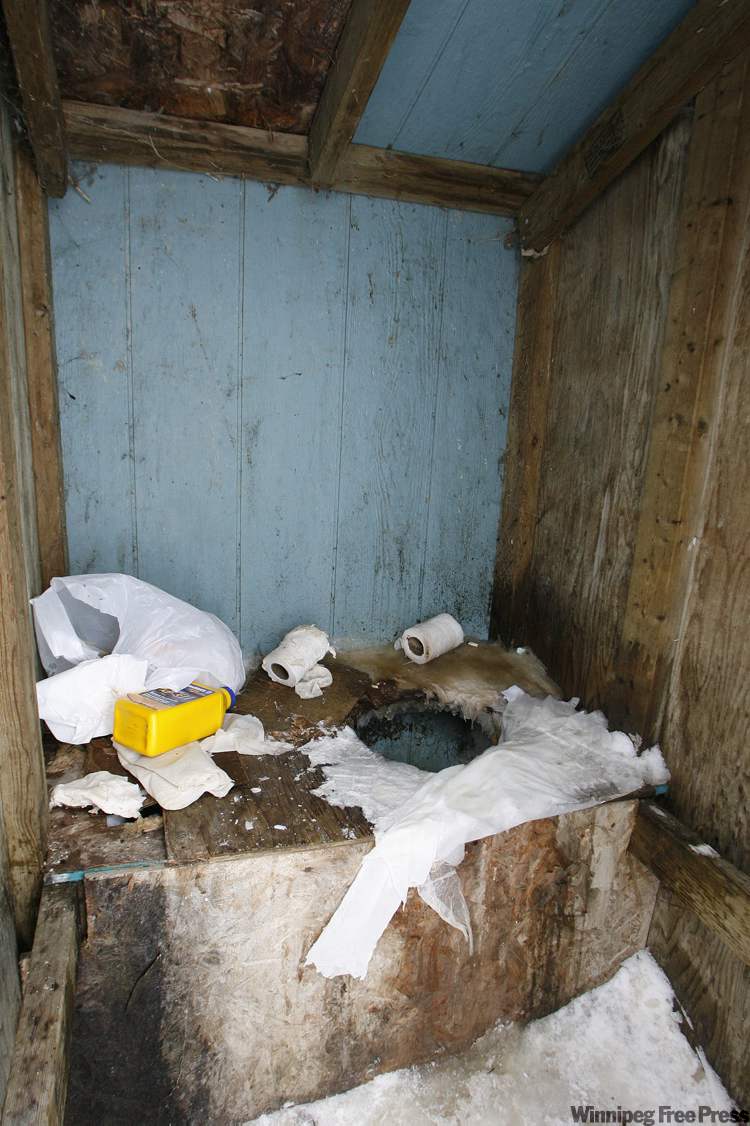Tongue-tied
Speaking out about health issues has risks
Advertisement
Read this article for free:
or
Already have an account? Log in here »
To continue reading, please subscribe:
Monthly Digital Subscription
$0 for the first 4 weeks*
- Enjoy unlimited reading on winnipegfreepress.com
- Read the E-Edition, our digital replica newspaper
- Access News Break, our award-winning app
- Play interactive puzzles
*No charge for 4 weeks then price increases to the regular rate of $19.00 plus GST every four weeks. Offer available to new and qualified returning subscribers only. Cancel any time.
Monthly Digital Subscription
$4.75/week*
- Enjoy unlimited reading on winnipegfreepress.com
- Read the E-Edition, our digital replica newspaper
- Access News Break, our award-winning app
- Play interactive puzzles
*Billed as $19 plus GST every four weeks. Cancel any time.
To continue reading, please subscribe:
Add Free Press access to your Brandon Sun subscription for only an additional
$1 for the first 4 weeks*
*Your next subscription payment will increase by $1.00 and you will be charged $16.99 plus GST for four weeks. After four weeks, your payment will increase to $23.99 plus GST every four weeks.
Read unlimited articles for free today:
or
Already have an account? Log in here »
Hey there, time traveller!
This article was published 06/11/2010 (5515 days ago), so information in it may no longer be current.
FROM his eighth-floor apartment overlooking the Manitoba Legislative Building, retired public health doctor Pete Sarsfield watches like a pesky conscience.
When he was in charge of the Northwestern Health Unit based in Kenora, he shamed the Canadian government by telling the world about unsanitary conditions — including no running water — on Pikangikum First Nation.
The result: a 2007 promise of almost $10 million to improve water and waste-water services, plus another $31 million for other community infrastructure on the reserve about 250 kilometres north of Kenora.

So far, no public health doctor in Manitoba has dared raise a similar stink about Island Lake, which has more homes without running water than anywhere else in Canada.
“Why aren’t more people outraged? What the hell is that?” Sarsfield asked recently.
“There are political risks if you do your job,” acknowledged the man who has been forced out of a job more than once over the course of his career. His peers honoured him in 2008 with an honorary lifetime membership in the Canadian Public Health Association.
Sarsfield did not work for the federal government, which is responsible for health care on reserves, but he accepted an offer from Pikangikum First Nation leaders to give an opinion on their water and sewage systems.
He points to a section of Ontario’s Health Protection and Promotion Act that says if mandatory public health services — such as safe drinking water and sanitation — are not being provided, the local public health unit shall do so.
In 2005, the Ontario government had already ordered the evacuation of Kashechewan First Nation after E. coli was found in drinking water, rather than wait for the federal government to act.
Plenty of health professionals in Manitoba are outraged by what they see in Island Lake, but many who were candid with the Free Press feared career consequences if their names were published. That’s not just a selfish consideration — one doctor pointed out if she were frozen out of the northern health-care field because of public comments, she’d no longer be able to do valuable work behind the scenes on behalf of her patients.
Sarsfield thinks the solution is for everyone with first-hand knowledge of the health impact of reserve living conditions to speak out.
“If we all took a Swann dive, it would stop,” he said, referring to Alberta’s Dr. David Swann, fired from his job as medical health officer for speaking out in favour of the Kyoto accord. He was eventually offered his job back, but went on instead to become leader of the Alberta Liberal Party.
Dr. Bruce Martin, associate dean of medicine at the University of Manitoba, teaches students it’s their job to advocate not just for individual patients, but for healthier communities.
“Some of my colleagues have been outspoken, and it has been to their personal and professional detriment. But I think that’s why we teach younger individuals about advocacy.”
Winnipeg medical students recently met with a provincial cabinet minister to talk about how to lobby effectively.
When Martin was a young doctor, he worked in an aboriginal community on the James Bay coast.
“I came back and told my parents in Toronto… this has got to change.”
Now he sees his role as harnessing that kind of passion in students and helping them channel it into working with the communities.

Nurses who treat the festering boils and pneumonia in Island Lake are even more fearful than doctors about speaking out, since their paycheques usually come directly from the federal government that is responsible for funding water and sewer services.
Health Canada originally told the Free Press that staff in Island Lake nursing stations were too busy for interviews. However, when nurses offered to talk, the government would not let them speak.
Like doctors, nurses are also taught that part of their professional responsibility is advocating for patients.
“I really object that as a professional, I have to seek permission to speak,” one northern nurse said. “I’m obligated to try to define and state what are the health problems here… I could tell you a story that would make Canada hide its face.”
Some resort to having relatives write letters to politicians. They also find themselves having to calm down relief nurses fresh from the city before their anger over the lack of running water in half of Island Lake’s homes gets them into trouble.
“They just want to call the politicians, but you can’t do that. You’ll lose your job.”
These days, some northern health professionals are aboriginal, but those who aren’t tend to be reluctant to speak out for fear of offending the First Nations leadership. They see the progress that has been made in recent years — the proportion of Manitoba reserve homes without plumbing was three times as high 15 years ago — so they’re prepared to wait for the problem to be resolved.
Many scientists believe their job ends when the research results are published because they can’t be sure how the issue they investigated fits into a First Nation’s other priorities.
However, First Nations leaders usually lack the medical knowledge that would allow them to make the most forceful case for improved services, unless they get help from activist doctors such as Sarsfield.
With the blessing of Pikangikum’s chief and elders — but not of the board at the health unit he ran — the doctor mailed copies of his team’s inspection report on the community’s water and sewer systems to aboriginal lobby groups, every politician he could think of and the media.
The federal NDP latched onto the issue and Sarsfield was interviewed by reporters as far away as England.
But the story is a reminder that funding announcements don’t always lead to real change. Pikangikum is still waiting for its promised water and sewer system.


